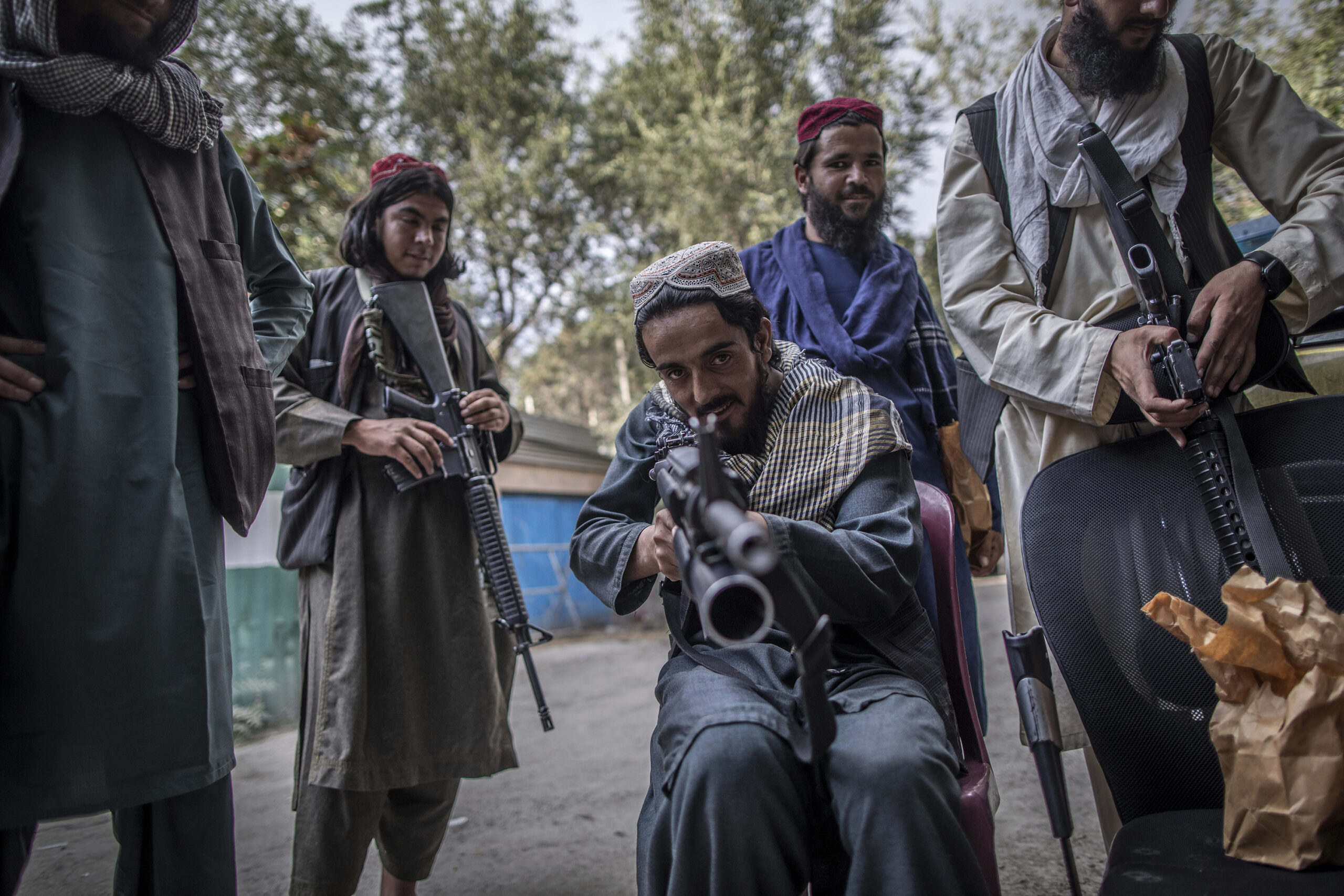Categories
Afghanistan Journalism OversightThe Taliban promised tolerance for the media and respect for women’s rights, but just a month after forming a caretaker government in Afghanistan, those promises are not being met.
The Taliban, a predominately Pashtun Islamist group, unveiled an interim caretaker government Sept. 7. All the members are males and are from the organization’s inner circle.
The group has made several statements since then vowing to respect women’s rights and allow journalists to continue working. It promises to avoid turning Afghanistan into a launchpad for attacks on the West and neighboring countries.
Spokesman Zabihullah Mujahid pledged at an Aug. 17 press conference that the Taliban would follow through on its promises.
The Taliban first took control of Afghanistan in 1996, declaring it an Islamic emirate and adopting a fundamentalist government. Women were required to wear burqas that covered them from head to toe and men were jailed if their beards were said to be too short. Television and music were banned.
But Mujahid said “there will be a difference when it comes to the actions we are going to take” now compared with 25 years ago.
Among those differences, according to Mujahid, will be respected for media within its cultural framework. “Private media can continue to be free and independent,” he said.
In addition, “women are going to be very active in the society but within the framework of Islam,” he said. “We are going to allow women to work and study. We have got frameworks, of course.” But despite these statements, the Taliban have already made a swift return to brutality toward dissenters, women, and reporters.
At a meeting with the media Sept. 19, the Taliban announced 11 rules that Afghan journalists, regardless of their medium, have to follow. The vaguely worded rules require the media to produce reports in coordination with the Government Media and Information Center.
In addition, journalists are no longer allowed to produce content that is contrary to Islam, insults national figures, or violates “privacy.”
Afghanistan sits at No.122 out of 180 nations on the Reporters Sans Frontières’ 2021 World Press Freedom Index. (The United States is ranked at No. 44.) The Taliban’s continued restrictions on freedom of speech will deteriorate the already limited media freedoms, said Arash Azizzada, a journalist and co-founder of Afghans for a Better Tomorrow and Afghan Diaspora for Equality and Progress.
“I think one of the success stories of the past few years is that there was this thriving, somewhat independent, press. And now we are seeing — kind of in slow mode — that independent free press is shrinking,” he said.
Azizzada said the international media could play a useful role in maintaining press freedom by “facilitating … journalism, protecting sources, and by giving these Afghan journalists a platform, which they otherwise wouldn’t have.” Azizzada said.
However, Azizzada said he didn’t expect the situation to improve while the Taliban remain at the helm of the country.
“I think for the foreseeable future, we will see almost like this information black hole, unfortunately. And I think for the foreseeable future, we should expect it to get worse,” Azizzada said.
Analysts have reached the same conclusion following reports of repeated attacks on reporters.
Bill Roggio, a senior fellow for the Foundation for Defense of Democracies and editor of the organization’s Long War Journal, said any hope of a free press independent of the Taliban following the release of the media rules is “dead.”
“Maybe you would say right now it’s on life support, and the Taliban is preparing to pull the plug at any moment,” Roggio said in an interview, adding that any Taliban promises to allow a free and fair press should not have been believed.
“The Taliban will not backtrack on this,” he said. “It has all the incentives to limit freedom of the press and has no reason to open the floodgates for a free press.”
Jawied Nawabi, assistant professor of Sociology, Economics and International Politics at City University of New York, Bronx Community College and an Afghan American scholar on development states, said the West has no choice but to engage with the Taliban.
“If the Taliban don’t have any foreign policy behaviors that are not threatening the U.S., the U.S., I don’t think, has any issues with not necessarily engaging with the Taliban, eventually,” Nawabi said.
But if the Taliban keep resorting to violence, he said the new government won’t see peace “either from the international community or from the Afghans inside.”





